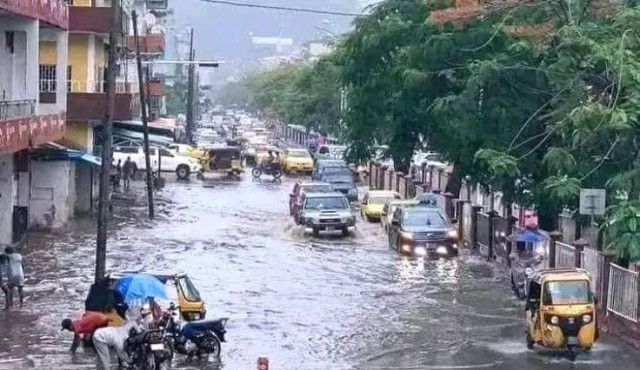Following intensive flooding in Liberia, group of senators on Monday proposed relocating the capital city away from overcrowded and poorly managed Monrovia.
This proposal has been greeted with mixed feelings in the West African country.
Flash floods triggered by torrential rains between the end of June and early July left nearly 50,000 Liberians in urgent need, the national disaster management agency said.
The flood-prone capital was particularly badly hit, owing in part to overpopulation, a poor sewage system, and a lack of building regulation.
Following the incident, a senate joint committee in early July suggested establishing a new city to replace Monrovia.
“It’s a good idea because our current capital city is a mess,” said Chris Kpewudu, a young motorbike driver in the capital.
“There is garbage all over the city and also when it rains, there is flooding everywhere, but with a new city, it will be well laid out and our capital city could look like, or more than, Abuja,” he added.
Monrovia is home to 1.5 million people and lies on the Atlantic coast of Liberia, one of the poorest countries in the world.
The city is the economic, political, and cultural hub of the country, with the Freeport of Monrovia providing a gateway for Liberian exports including iron ore, rubber, and timber to reach the United States and Europe.
The Ministry of Public Works told AFP it was carefully reviewing the proposal, adding that the the plan did not yet include an exact location for the move, and that any decision would come down to economic viability.
“Having a new city is capital-intensive,” said T. T. Benjamin Myers, the ministry’s communications director.
“As a country, our national budget is still around $600 million… so having a new city will require a lot of technical, financial, and economic factors to be seriously considered,” he added.
The proposal to replace the capital is not a new one in Africa’s oldest republic.




















